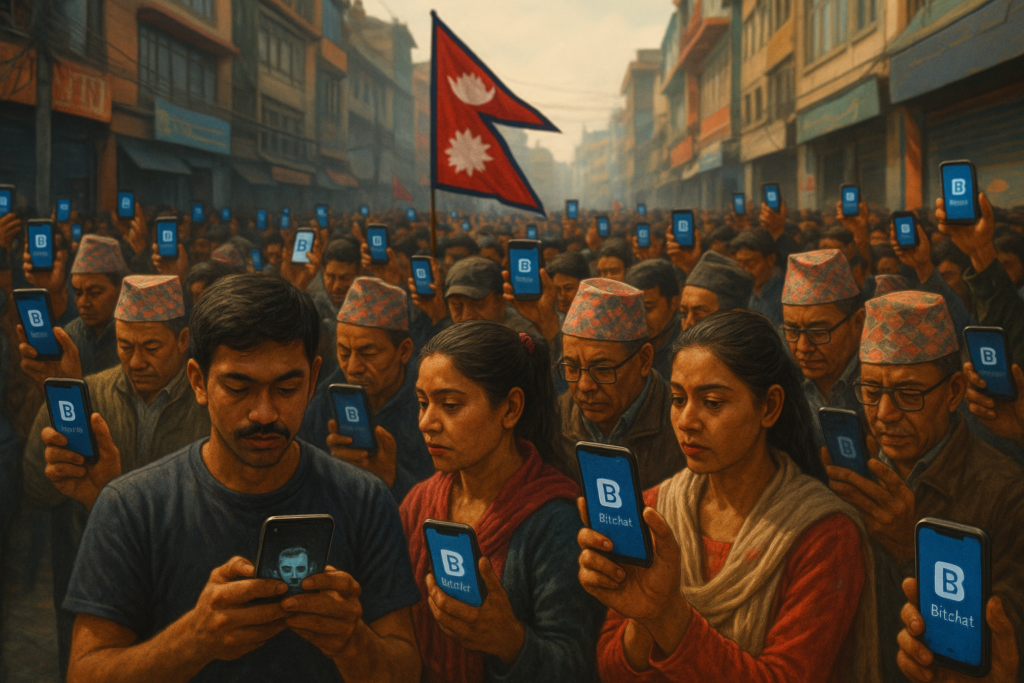Over 48,000 Nepalis turned to decentralized messaging as violent unrest forced Prime Minister KP Sharma Oli to resign.
Decentralized app adoption surges in Nepal
Nepal has witnessed a dramatic surge in downloads of Jack Dorsey’s decentralized messaging app, Bitchat, as violent protests over corruption escalated earlier this week. According to data shared by Bitcoin developer “callebtc,” downloads in Nepal jumped from fewer than 3,400 last Wednesday to more than 48,700 by Monday — surpassing Indonesia, which also saw an uptick amid similar demonstrations.
The sudden growth was sparked by a government-imposed ban on Facebook, Instagram, WhatsApp, and YouTube, aimed at slowing the spread of anti-government content. Instead, young protesters turned to encrypted, internet-free alternatives like Bitchat.
Protests turn deadly
The protests, largely led by Nepal’s youth, quickly spiraled into violence. Demonstrators set fire to the nation’s parliament and supreme court buildings, while the residence of Prime Minister KP Sharma Oli was stormed. Security forces responded with live ammunition and tear gas, leaving at least 19 people dead and hundreds injured.
Oli, who was accused of misusing public funds and concealing political decisions, has since stepped down.
“This is a turning point for Nepal’s political landscape,” said a South Asia policy analyst. “When governments try to silence voices online, citizens find new tools to make themselves heard.”
Rise of “freedom tech”
The events in Nepal highlight the rising role of encrypted, decentralized messaging apps — often referred to as “freedom tech” — in times of political instability. Unlike centralized platforms owned by corporations, apps like Bitchat operate without servers, phone numbers, or registration, using Bluetooth mesh networks to enable secure communication without the internet.
Launched in July, Bitchat is barely two months old but has already positioned itself as a censorship-resistant alternative. “We are seeing real-world demand for decentralized tools in moments of crisis,” noted callebtc.
Still, the challenge remains steep. Meta’s platforms — Facebook, Messenger, Instagram, and WhatsApp — collectively drew 3.48 billion daily users in June, a 6% year-on-year increase.
For now, the Nepal protests demonstrate how quickly digital resistance can take shape when traditional channels are blocked.
Disclaimer
This content is for informational purposes only and does not constitute financial, investment, or legal advice. Cryptocurrency trading involves risk and may result in financial loss.
